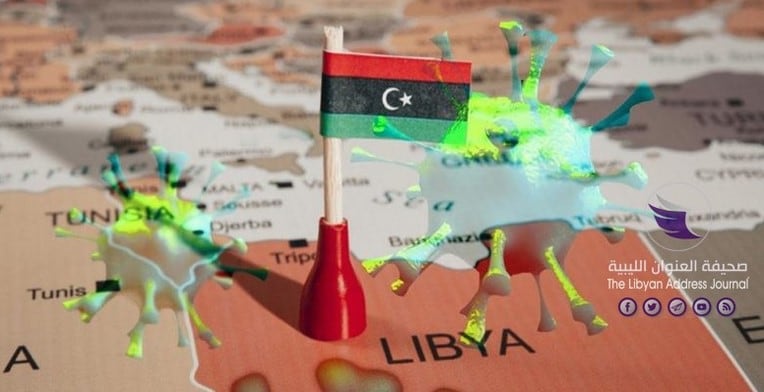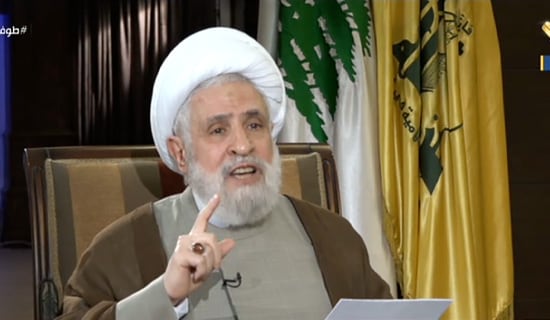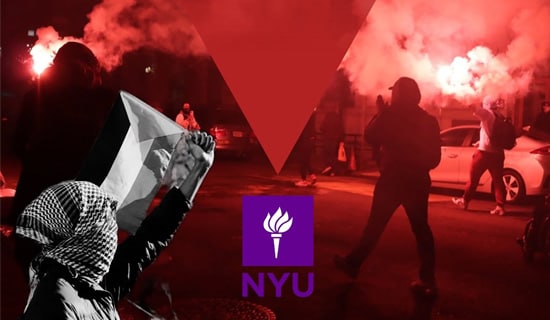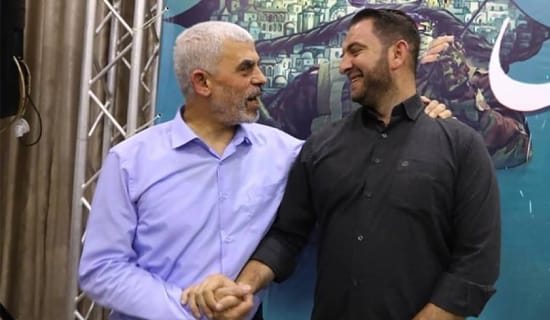The global coronavirus outbreak has not passed over Libya, which for years has been in the throes of civil war, with two parallel governments vying for political and military power: on the one hand the Government of National Accord (GNA), headed by Fayez Al-Sarraj, which is supported by the UN, by Turkey and Qatar, and by Islamist circles within Libya itself such as the Muslim Brotherhood, and on the other hand the Libyan National Army, under the command of Gen. Khalifa Haftar, who is close to the UAE and to Egypt. The civil war has taken its toll on Libya’s infrastructures, including on the healthcare system. In light of the global pandemic, both sides have taken stringent precautionary measures to prevent the spread of the coronavirus in Libya, to the point of imposing a general curfew. As of April 5, 2020, Libya’s National Center for Disease Control reported 18 confirmed cases of COVID-19 in the country.[1]
At the same time, there has been intense domestic and international pressure on both sides in Libya to cease the hostilities and join forces in fighting the pandemic. Among the prominent elements pushing for a humanitarian ceasefire are the UN Mission to Libya, the EU, the U.S., and several foreign embassies in Libya, those of the U.S., Britain, France, Germany, the Netherlands, the UAE, Tunisia and Algeria. It should be noted that, on March 21, the two sides indeed agreed on a ceasefire, but reports on violations by both sides appeared already the very next day.[2] This prompted renewed calls to stop the fighting, including by U.S. Ambassador to Libya Richard Norland who, in an open letter to both sides, urged them to halt the mobilization of foreign fighters who constitute a real threat of spreading the coronavirus epidemic, and called on Haftar to stop military operations in Tripoli.[3]
Within Libya itself, journalists and former politicians criticized the warring factions for continuing the hostilities instead of devoting their energy to fighting the coronavirus and protecting the lives of the Libyan people. One article even suggested, in sarcasm, to place all Libyans over 65 under strict lockdown, in order to let younger people take over the management of the country and reach a comprehensive peace agreement. Many writers, especially on media associated with Haftar’s camp, called to halt the hostilities and join forces in the fight against the disease.
The following are translated excerpts from some of the articles:

Source: addresslibya.co
Criticism Of Libya’s Leaders: They Are Letting People Die Of Coronavirus; They Must Be Replaced By Younger Blood
Libyan journalists castigated the leaders from both camps, accusing them of being preoccupied with fighting each other instead of caring for the people, and calling to replace them with younger leaders.
Libyan Journalist: Instead Of Fighting The Coronavirus, Our Governments Are Spending Money On Wars And Abandoning Us To Our Fate
Libyan journalist Muhammad Al-Amin wrote on the Ewanlibya.ly website, which is identified with Haftar’s camp: “As the historic crises multiply, come to a head and strike at all the world’s nations, large and small, there are discernable signs of solidarity between the peoples and their governments in the disaster-struck countries. We see peoples uniting around [their state] institutions… and a general mobilization of the states’ resources for the benefit of the people.
“But what [resources] have the Libyan governments put aside for the sake of the Libyans? [What] are they doing for their sake in these difficult times?... What did they prepare in order to cope with potential crises? The answer [to these questions] emanates from the [battle]fronts and from the barrels of guns, from rockets that fall one by one on the homes of peaceful civilians, from the ruins of houses and the wounds of the injured, from the weeping of mothers grieving for young men who were destroyed by the [leaders’] lust for power… The answer is clear and requires no explanation…
“Look at the nations around you, at the peoples and governments in the East and West, and you will find that only the Arab countries are [still engaged in internal] fighting! [Only there are] the failing leaderships and governments [still] engaged in disgraceful quarrels while the epidemic spreads and death threatens innocent people… Look at the other nations of the world. Differences of belief, religion and sect do not divide them. [Instead,] the difficulty and danger unites them.
“After everything mentioned above, do you need further evidence that [Libya’s governments] are remiss in [protecting] your lives?... The millions they spend on wars, ammunition and mercenaries could have fed and protected you and dealt with the shortage of medicines and food as part of increasingly stringent precautionary measures… [But] where will they obtain medicines and food [today]? Have they even though about this? Will they bring you what you need from Italy? From China? From Taiwan? Or from the neighboring [countries], which are [likewise] in a state of crisis? Or will [these governments] set their members loose to get rich at the expense of your hunger and suffering? Had they a single drop of patriotism of any sense of belonging to this nation, they would not have devoted [even one more] hour to fighting. They are the enemy. Beware them! And may Allah help [us].” [4]
Libyan Journalist: Perhaps We Can Quarantine Our Old Leaders And Let Young People Reach An Agreement
In a sarcastic article on the website of “ 218 TV” a pro-Haftar television channel, journalist Muhammad Khalifa Idris suggested placing all Libyans over the age of 65 in quarantine, in order to let younger people take over and reach an comprehensive settlement in the country. He wrote: “The coronavirus, which has shaken the world, reached Libya four months after it was first discovered. Its arrival was slightly delayed, like everything else in Libya: salaries, revolutions, inventions like the Internet, satellites and mobile phones, as well as understandings and peace… [But] I insist that the arrival of the virus provides us with a golden opportunity to reach a comprehensive peace agreement in Libya, if we follow the example of the local authorities in Switzerland who placed everyone over 65 in permanent quarantine, to protect their health. If we implement this [here], there will be a vacuum in the political arena that will allow young people to emerge and find a comprehensive solution to the [political] crisis. In my opinion, the old people, on all sides, who cleave [to their old] political initiatives and political circles… are part of the problem. In the Libyan case, their quarantine will be a strict one, preventing them even from using the phone or the Internet, which will be cut off, because [Libya] suffers from frequent and lengthy power outages, and this will keep them truly isolated. If we succeed, future generations [in Libya] will be grateful to the coronavirus, and we will not be surprised if they even erect a statue to the virus in central [Tripoli] and name main boulevards in the cities ‘Corona’ [in its honor]!”[5]
SUPPORT OUR WORK

Libyan Writers On Both Sides Of The Political Divide: The Fight Against The Virus Requires Us To Unite
Alongside the criticism of the leaders, some articles urged both camps to stop fighting because the call of the hour is to join forces in the war against the epidemic.
Article On Pro-Haftar Website: In Order To Fight The Virus Effectively, We First Of All Need A Campaign For Peace In Libya
In an article in the pro-Haftar Libyan paper Al-Wasat, journalist Ahmad Al-Fitouri called to launch a campaign for peace, so that both camps will be free to fight the coronavirus together. He wrote: “Libya has been in the grips of civil war since February 2011… Recently,…the deadly epidemic wrought by the coronavirus has been knocking on our doors… [but] the state, with its blood-stained hands, now lacks the power to fight it, and [in fact] lacked this ability even before the civil war. This means that we are incapable of fighting back against the virus, especially since the whole world is mired in this pandemic, so the international and regional elements are not interested in the Libyan issue and are compelled to follow the Libyan proverb that says, ‘an honorable woman looks first of all after her own home.’ Everyone is fighting this invisible virus… Even the laboratories [of the developed countries] are insufficiently familiar with the enemy to fight it, and that is why it is gaining strength…
“The coronavirus is ringing warning bells, [telling us that] victory will be achieved by surviving and defending our lives. That is the rational thing to do, and the coronavirus has caused us to realize it. This is the time to overcome all the obstacles, [for] the greatest obstacle [i.e., the pandemic] is an insufferable catastrophe that is threatening to destroy everything…[This crisis] must be handled with wisdom and intelligence by political means and by waging [a campaign for] peace, which is the most difficult [campaign], but is [nevertheless] possible and unavoidable… [and must be waged] today, not tomorrow. We must launch the campaign for peace… for it is a campaign for life, in which there is no surrendering. Only a strong and courageous figure can lead it, for it is ultimately a battle for life or death. Nature and the word of God have given this virus the power to decide the fate of humanity as a whole. God’s wisdom… is restoring people’s wisdom through a disaster.”[6]
Article On Website Identified With Sarraj Government: Let Us Unite In A War Of Survival Against The Virus
A similar call for unity was made by Libyan journalist ‘Abd Al-Razzaq Al-Dahash on Eanlibya.com, a pro-GNA website. He wrote: “Governments and oppositions, brothers and enemies everywhere have put aside their disagreements and focused their attention to the coronavirus. The entire world [is fighting] a virus that does not distinguish between right-wing and left-wing [supporters], between the genders, between ethnicities and between good and bad [people]. [But] despite all the fear [of this disease] – which is sometimes justified and sometimes excessive – the virus has so far killed less people than the war on Tripoli [declared by General Haftar in April 2019].
“Let’s put aside the declared commitments to stop the fighting, the conclusions of the Berlin [Conference],[7] and Resolution [2510] of the Security Council,[8] and embrace the decision of the Council of Reason. For today, nothing speaks louder than the coronavirus and the fight against it. In the U.S., [face] masks have become more important than Patriot missiles and in Russia they have become more important than the S-400 missiles. In Europe, Dettol [disinfectant] has become more important than Star Wars [Program] weapons. Today, the decision of the Libyan nation is the decision of the Council of Reason, which is to stop the intra-Libyan war and the foreign war against Libya, and turn to the global war of survival against the coronavirus… We Libyans share a single homeland, and since recently [also] a single coronavirus [epidemic].” [9]
Former Libyan Politicians: The Continued Fighting Undermines The Battle Against The Disease; It Is Time For A Comprehensive Ceasefire
As mentioned, calls to unite in the struggle against the pandemic were also voiced by former Libyan politicians. In a post on his personal Facebook account, political analyst Ibrahim Grada, formerly Libya’s ambassador to Denmark, Sweden and Lebanon and a senior UN advisor, addressed the speakers of Libya’s two rival parliaments – Aguila Saleh Issa, speaker of the parliament in Tobrouk, and Hamouda Sayala, speaker of the parliament in Tripoli – and said: “Do the times and circumstances not require the entire [Libyan] parliament [consisting of the two parliaments in Tobruk and Tripoli] to convene, in order to discuss and supervise the handling of the coronavirus epidemic? What prevents this from happening? Or are political positions and considerations more important than the health of the people?...”[10]

Ibrahim Grada’s post
Fatma Hamroush, who was health minister in Libya’s interim government (2011-2012), wrote on her Facebook account: “The continued [internal] fighting increases the danger that the epidemic will spread and diminishes the chances of fighting it [successfully]. There is no choice but to declare a comprehensive ceasefire. Pool your efforts, strength and funds and devote them to fighting the common enemy, before it is too late…”[11]

Fatma Hamroush’s post
[1] Ncdc.org.ly, April 5, 2020.
[2] Facebook.com/mediawarinformationdivision , arraedlg.net, facebook.com/GNAMedia, March 21, 2020; facebook.com/Burkanly, March 22, 2020; facebook.com/LNAspox, March 23, 2020; facebook.com/GNAMedia, afrigatenews.net, March 25, 2020.
[3] Ly.usembassy.gov, March 27, 2020.
[4] Ewanlibya.ly, March 15, 2020.
[5] 218tv.net, March 29, 2020.
[6] Al-Wasat (Libya), March 17, 2020.
[7] The January 19, 2020 Berlin Conference on Libya was attended by the presidents of Russia, Turkey and France, the U.S. Secretary of State, and representatives of China, Britain, the UAE, Egypt, Congo, Algeria, the UN, the Arab League, the EU, and the African Union. Its conclusions called on the rival parties in Libya to stop the hostilities and on all actors to enforce the arms embargo on Libya. It also called for a transparent and equitable distribution of oil revenues, and for the sides to continue their political, security and economic dialogue. Bundesregierung.de, January 19, 2020; Al-Akhbar (Lebanon), January 20, 2020.
[8] A resolution passed on February 12, 2020, which essentially endorsed the conclusions of the Berlin Conference.
[9] Eanlibya.com, March 17, 2020.
[10] Facebook.com/igrada, March 15, 2020.
[11] Facebook.com/Fatima.hamroush.9, March 17, 2010.




